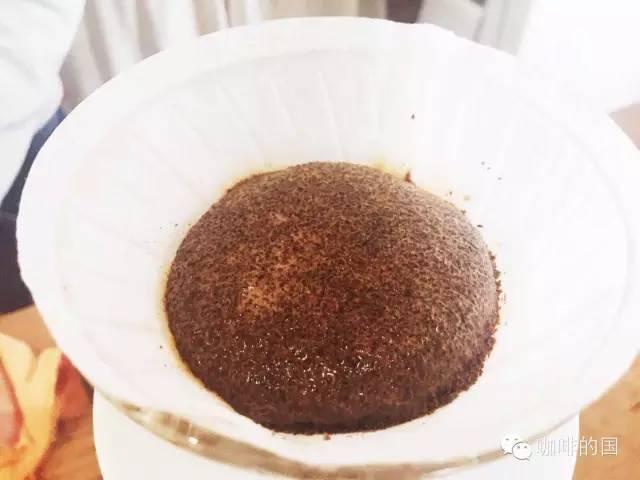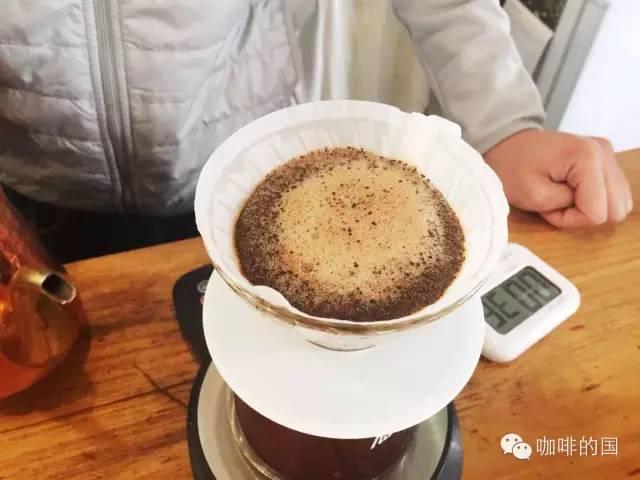Coffee powder expands when it comes into hot water. Do you know why?
First of all, what on earth is this bubble?
The air inside the bubble is carbon dioxide originally enclosed in roasted beans, and the outer membrane of the bubble is formed by proteins and polysaccharides (the same substance covered by the surface of espresso). Some people say that the bubbles produced by these drips are "impurities", but I think this is too strict, because removing these bubbles or mixing them in the coffee liquid will not have a great impact on the taste of the coffee.

When hot water is injected into coffee powder, some bubbles are extremely delicate, some are very large, and some do not seem to produce bubbles, which is due to the way carbon dioxide occurs.
Freshly roasted coffee beans contain a lot of carbon dioxide, and large bubbles often appear when hot water is injected into the coffee beans. Personally, I don't think this is a bad thing, but carbon dioxide will hinder the contact of hot water with coffee powder and affect the extraction. In this way, even if you always brew coffee in the same way, sometimes the coffee will become more than usual. You have to be careful. You usually listen to the coffee beans roast and rest for one night, and then use them when the taste is stable. I think that's why.

Second, does the coffee powder not expand when hot water is injected, so the coffee beans are not fresh?
There are no bubbles or low expansion of coffee powder, that is, when the content of carbon dioxide is low. There is also a saying that "the fact that coffee does not swell means that the beans are not fresh." Roasted coffee beans do have less carbon dioxide after they have been kept for a period of time, so it's time to wait. The amount of carbon dioxide does decrease, so this is not necessarily all wrong, but sometimes it is not for this reason, if the desiccant that absorbs carbon dioxide is packed, or hot water is slowly injected into the coarse ground coffee powder, or the hot water temperature is on the low side, the same will happen.

So there are many reasons why coffee powder expands when hot water is injected, which requires more practice to accumulate more experience.
Important Notice :
前街咖啡 FrontStreet Coffee has moved to new addredd:
FrontStreet Coffee Address: 315,Donghua East Road,GuangZhou
Tel:020 38364473
- Prev

Coffee powder expands when it comes into hot water. Do you know why?
First of all, what on earth is this bubble? The air inside the bubble is carbon dioxide originally enclosed in roasted beans, and the outer membrane of the bubble is formed by proteins and polysaccharides (the same substance covered by the surface of espresso). Some people say that the bubbles produced during these drip filtration are impurities, but I think this is too strict, because whether it is to remove these bubbles or return them.
- Next

Sumatra coffee was once the world's first coffee mandheling
Mantenin coffee Mantenin coffee is produced in Sumatra, Indonesia, Asia, otherwise known as Sumatra coffee. Her flavor is very rich, fragrant, bitter, mellow, with a little sweet. Most coffee lovers drink it as a single item, but it is also an indispensable variety for blending coffee. Before Blue Mountain was introduced to the world, mantining coffee was considered the best in the world.
Related
- Beginners will see the "Coffee pull flower" guide!
- What is the difference between ice blog purified milk and ordinary milk coffee?
- Why is the Philippines the largest producer of crops in Liberia?
- For coffee extraction, should the fine powder be retained?
- How does extracted espresso fill pressed powder? How much strength does it take to press the powder?
- How to make jasmine cold extract coffee? Is the jasmine + latte good?
- Will this little toy really make the coffee taste better? How does Lily Drip affect coffee extraction?
- Will the action of slapping the filter cup also affect coffee extraction?
- What's the difference between powder-to-water ratio and powder-to-liquid ratio?
- What is the Ethiopian local species? What does it have to do with Heirloom native species?

